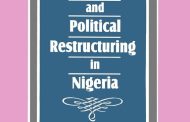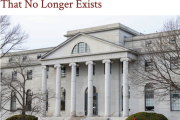There is a slim reference nowadays to the narrative that a radio broadcast from an unidentified location, (some say from a diplomatic compound in Kaduna, others say from somewhere in Cameroon) that triggered the Nigerian Civil War. It shows how dangerous what we know now as fake news can be. It is not the same thing as slanting or propaganda or hate speeches. Rather than any of those three, it is news that did not happen at all. Feeding on the media literacy deficit of ordinary readers, fake news is about creation and circulation of sophisticated falsehood. The aim is to deceive and ignite consequences that aid the agenda of those who create them, whatever such agenda might be.
 In a deeply divided society such as Nigeria of today, it would be impossible to rule out the appeal of an instrument such as fake news to one or two actors with self-righteous grounds for such line of action. Whether any agenda warrants hauling a fake story that could trigger horrendous outcome for others is a different question. More so if it is about discrediting the government of the day since the high officials of the government are not the ones who will suffer such consequences. Additionally, crude use of fake news about herdsmen atrocities is a counter-productive strategy because it undermines the real threat. It also undermines whatever utility anyone might hope to get out of it because it would become clear that it is blackmail game in town.
In a deeply divided society such as Nigeria of today, it would be impossible to rule out the appeal of an instrument such as fake news to one or two actors with self-righteous grounds for such line of action. Whether any agenda warrants hauling a fake story that could trigger horrendous outcome for others is a different question. More so if it is about discrediting the government of the day since the high officials of the government are not the ones who will suffer such consequences. Additionally, crude use of fake news about herdsmen atrocities is a counter-productive strategy because it undermines the real threat. It also undermines whatever utility anyone might hope to get out of it because it would become clear that it is blackmail game in town.
It might be okay in Nigeria or we have gotten used to abusing each other on the pages of the media but then there is a consensus that it must not go beyond that. That is, Nigeria must not be allowed to slide into the kind of anomie that we have seen across many African countries. This is because such implosion would be a war without battlefields and the human misery could be such that its survivors might not even find living worth it.
 It is against this background that the Nigeria Police deserves commendation for its swift response to the fake news yesterday that herdsmen had killed travellers along Lagos/Ibadan Expressway. Not only did the Assistant Inspector of Police in charge of the Police Public Relations for Ogun State Command issue a counter, the officer was able to pin the picture being used to illustrate the non-existent attack. It was the picture of an unbelievable accident that took place in 2010. The speed of the response is not typical of the lethargy we see on the part of the same police establishment on other occasions or other government institutions on such incidents.
It is against this background that the Nigeria Police deserves commendation for its swift response to the fake news yesterday that herdsmen had killed travellers along Lagos/Ibadan Expressway. Not only did the Assistant Inspector of Police in charge of the Police Public Relations for Ogun State Command issue a counter, the officer was able to pin the picture being used to illustrate the non-existent attack. It was the picture of an unbelievable accident that took place in 2010. The speed of the response is not typical of the lethargy we see on the part of the same police establishment on other occasions or other government institutions on such incidents.
But, more than the sharp handling of the particular fake news is the message of the same fake news: how easy it is to set a destructive process in motion through that instrument at a time when commonsense is least common. It is that easy because those who would use it to enact the violent response to that imagery are not people with the luxury for thinking twice. And they might have got what it takes to put them to work.
In the last instance, there are no solutions to such misuse of modern techniques of communication other than good, democratic governance but even then, this country must move from preachy moralisation against fake news to the combined use of the rule of law, effective strategic communication and efficient policing while the struggle for good governance gathers space. Fake news is a unique challenge for Strategic Communication, not Crisis Communication. Meanwhile, kudos to the PPRO in question and to his immediate boss as PR practitioners would say it is almost always impossible to excel without a boss who also wants excellence.


























